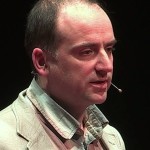 Open Definition 2.0 released
Open Definition 2.0 released
Today Open Knowledge and the Open Definition Advisory Council announced the release of version 2.0 of the Open Definition. The Definition “sets out principles that define openness in relation to data and content,” and is the baseline from which various public licenses are measured. Any content released under an Open Definition-conformant license means that anyone can “freely access, use, modify, and share that content, for any purpose, subject, at most, to requirements that preserve provenance and openness.”






